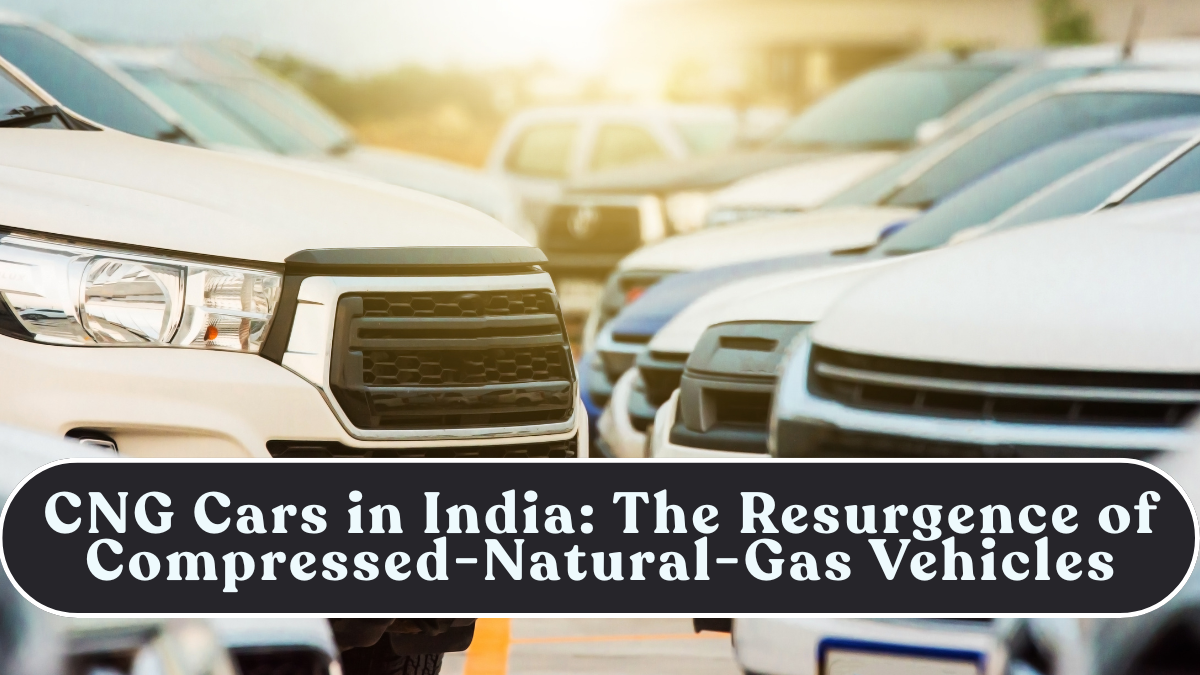While electric cars dominate headlines, a quiet revolution is happening on India’s roads — the resurgence of CNG vehicles. Affordable, efficient, and cleaner than petrol or diesel, Compressed Natural Gas (CNG) cars are rapidly gaining popularity once again. With fuel costs rising and EV charging infrastructure still expanding, many Indian buyers are rediscovering the value of CNG cars as a smart, economical alternative.

Why CNG Vehicles Are Gaining Popularity Again
-
Cost-Effective Fuel:
With petrol prices crossing ₹100 per litre in several states, CNG costs around ₹75–₹85/kg, offering 40–50% lower running costs. -
Eco-Friendly Choice:
CNG emits up to 25% less CO₂ and nearly zero particulate matter, making it a greener fuel compared to petrol or diesel. -
Government Push for Cleaner Mobility:
Under India’s Green Fuel Policy and City Gas Distribution (CGD) expansion, more CNG stations are being installed nationwide. The goal is to reach 17,700 stations by 2030, making refueling much more convenient. -
Broader Model Availability:
Carmakers such as Maruti Suzuki, Hyundai, and Tata Motors are introducing factory-fitted CNG variants across their lineups.
Top CNG Cars in India 2025
| Model | Mileage (km/kg) | Price Range (₹ lakh) | Fuel Type |
|---|---|---|---|
| Maruti WagonR CNG | 32.5 | 6.5–7.5 | CNG-Petrol |
| Hyundai Grand i10 Nios CNG | 28.5 | 7.0–8.0 | CNG-Petrol |
| Tata Tiago iCNG | 26.5 | 7.3–8.2 | CNG-Petrol |
| Maruti Dzire CNG | 30.1 | 8.3–9.5 | CNG-Petrol |
| Toyota Glanza CNG | 30.6 | 9.5–10.5 | CNG-Petrol |
CNG vs Electric Vehicles: The Ongoing Debate
While EVs are the future, India’s infrastructure and power grid still face challenges in mass electrification. CNG vehicles act as a bridge technology, balancing affordability and sustainability.
| Parameter | CNG Vehicles | Electric Vehicles (EVs) |
|---|---|---|
| Upfront Cost | Moderate | High |
| Running Cost | ₹2–2.5/km | ₹1–1.2/km |
| Infrastructure Availability | Expanding | Limited |
| Refueling/Charging Time | 5 minutes | 6–8 hours (AC) / 30 mins (DC) |
| Emissions | 25% lower than petrol | Zero tailpipe emissions |
EVs are ideal for the long term, but CNG vehicles offer immediate affordability and convenience—especially in Tier 2 and Tier 3 cities where charging infrastructure remains minimal.
Government Incentives and Policy Support
The Indian government’s National Gas Grid Expansion Plan and the SATAT scheme (Sustainable Alternative Towards Affordable Transportation) are fueling the CNG boom:
-
Over 12,000 CNG filling stations already operational across 450+ districts.
-
Tax benefits and faster environmental clearances for CNG stations.
-
Support for bio-CNG projects, turning organic waste into clean fuel.
States like Maharashtra, Gujarat, and Delhi NCR have seen record sales of CNG cars thanks to these incentives.
Why Indian Families Prefer CNG Cars
-
Budget-Friendly: CNG variants are typically ₹80,000–₹1 lakh cheaper than comparable EVs.
-
Dual Fuel Flexibility: Many models come with CNG + petrol options for convenience.
-
Low Maintenance: Engine wear is minimal, and CNG burns cleaner, reducing oil change frequency.
-
Reliable Range: No anxiety about battery levels — CNG cars easily cover 250–300 km per tank.
Challenges Ahead
-
Limited refueling stations in rural areas.
-
Reduced boot space due to CNG tank installation.
-
Slightly lower power output compared to petrol versions.
-
Need for public awareness campaigns to boost adoption beyond metros.
However, new technologies like toroidal CNG tanks and direct CNG injection systems are solving space and performance issues.
Future of CNG Vehicles in India
Experts predict that CNG sales will triple by 2030, accounting for over 15% of total car sales. Automakers are also exploring hybrid-CNG technologies to improve mileage further. As India transitions toward green mobility, CNG will remain a vital stepping stone before full electrification.
Conclusion
The resurgence of CNG cars in India reflects the nation’s search for practical, sustainable, and affordable mobility solutions. While EVs promise a cleaner future, CNG vehicles provide an achievable present — balancing cost, convenience, and environmental impact. For millions of Indian drivers, this resurgence isn’t just about fuel choice — it’s about driving smart in uncertain economic times.
FAQs
Are CNG cars safe in India?
Yes, factory-fitted CNG kits meet strict safety standards, and modern systems include automatic gas cut-off valves.
How much money can I save using CNG instead of petrol?
You can save up to ₹3–4 per km, depending on local fuel prices and mileage.
Can CNG cars run only on gas?
Most models are bi-fuel, allowing you to switch between CNG and petrol at any time.
Will CNG availability improve outside metro cities?
Yes, with over 17,000 CNG stations planned by 2030, access is expanding to Tier 2 and Tier 3 towns.
Which car brands offer the best CNG options in India?
Maruti Suzuki, Tata Motors, Hyundai, and Toyota lead the market with multiple factory-fitted CNG variants.
